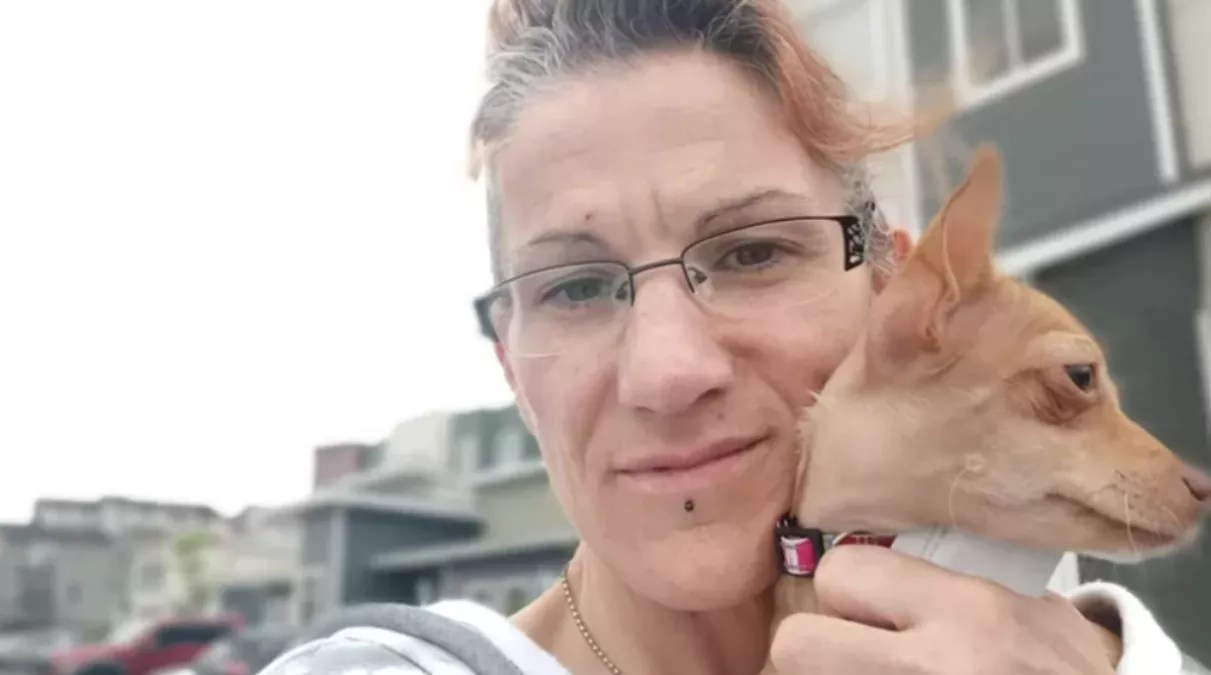

Audio By Carbonatix
A 2022 lawsuit filed over Amy Cross’s methamphetamine overdose death in a Weld County jail has been settled for $3.5 million.
An attorney for the Denver law firm representing the Cross estate sees the size of the agreement as significant in multiple ways.
“I think it represents the severity of what happened to Amy Cross,” says Anna Holland Edwards of Holland, Holland Edwards & Grossman LLC. “She suffered a tremendously awful death for no reason – and we and the family hope this type of settlement sends a message to jails and private medical companies that people do care what happens to people in our jails.”
Also named in the lawsuit was Turn Key Health Clinics, an Oklahoma City-based private company that contracted with Weld County to provide medical treatment at the jail.
The complaint notes that Amy Cross was booked into the jail on September 3, 2021, and she admitted to recent drug use and having symptoms of withdrawal in the past. However, no alert about such issues appears to have been recorded during the intake process.
This dearth of information quickly became important, since Cross had an undetected bag of methamphetamine inside her body at the time of her admission to the jail, and during the hours that followed, it apparently broke open, triggering a long series of worsening events.
According to the suit, sometime after 4 p.m. on September 4, 2022, Cross experienced chest pain and began yelling to jail personnel that she needed to be hospitalized. Deputies responded by taking her to the medical unit, where she began behaving erratically – getting out of her wheelchair and skipping, for instance, then laying on the floor. Additionally, Cross had a high pulse rate and was shaking and clammy.
In response to these indications of a heart condition, nurses said they offered to perform an EKG but insisted that Cross refused. Whether she understood what was being suggested due to the effects of the meth overdose is unclear. But in the end, these caretakers marked Cross down as having declined treatment and ordered that she be returned to her cell. One supervisor was quoted as dismissing her symptoms by way of the line, “She is acting a fool.”
By 6 p.m., Cross had been moved to a different unit and deputies noticed that her health was deteriorating; once again, she was found lying on the floor and appeared to be experiencing seizures. Shortly thereafter, Cross began to emit brown foam from her mouth and her fingertips turned blue. But no medical emergency was called, allegedly because she was believed to be faking, according to the lawsuit.
Finally, at around 11:25 p.m., Turn Key staffers checked on Cross again and discovered that her blood pressure was dangerously low. Nonetheless, valuable minutes passed before a medical emergency was declared – and by the time the crew arrived, Cross was dead.
Afterward, the lawsuit asserts that a coverup of sorts took place. The paramedics who’d rushed to the scene are said to have been told that Cross’s symptoms didn’t manifest until approximately twenty minutes before she died.
This tragedy is far from unique, Holland Edwards acknowledges. What’s changed of late, she says, is the seriousness with which jail deaths that may have been caused by substandard health care are being treated.
“I’ve been doing cases against jails and medical companies for preventable deaths for years,” she explains. “And over the evolution of this litigation, we would first hear from defense lawyers or defendants that people wouldn’t care because the victims were in jail – but that didn’t turn out to be true. Next, they said they wouldn’t care because it was a mental-health issue, which didn’t turn out to be true, either. Then they said people wouldn’t care if addiction or drug use played a part in the death. But this settlement shows otherwise – and it means these companies need to stop wondering about what people don’t care about and start worrying about their own conduct.”
The impact of such lawsuits has been far-reaching. Settlements related to jail deaths are believed to have been major factors in recent bankruptcy declarations by two major companies specializing in medical care for incarcerated individuals, Corizon and Wellpath. Neither were involved in the Cross case – but Turn Key is no longer providing jail services for Weld County.
“That’s another thing happening in jails all over the country: These companies just swap in and out,” Holland Edwards observes. “And at a time when jail medical companies are going bankrupt, securing some justice for the family felt really important.
“For the families of people who die this type of death in jails, there’s no end to the sadness and the sense of being wronged,” Holland Edwards adds. “But after representing many families in this situation over the years, we know that demanding responsibility and accountability makes the family part of the fight to change the system.”
Westword has reached out to Weld County for comment about the settlement.
Click to read the Estate of Amy Lynn Cross v. Turn Key Health Clinics, et al.